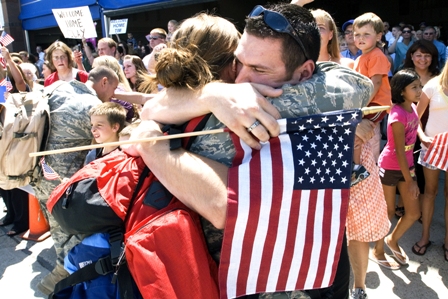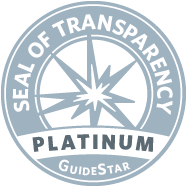Wounded Veterans' New Fight: The VA
Veterans
Find Getting Vocational Training Sometimes Means Fighting a New Battle
(CBS) Former Army medic Jeremy
Smith was wounded and paralyzed in Afghanistan. Clearly qualified for
both medical and pension benefits, Smith was surprised when a Veteran's
Affairs counselor told him he wasn't disabled enough for vocational
benefits.
"How can I not be disabled enough? How much more disabled do I need
to be," Smith asked. "Should I go throw myself under a bus real quick?"
Brandon Frazier has a similar story. A veteran of the 2004 Marine
assault on Fallujah, Brandon suffered hearing loss and Post Traumatic
Stress Disorder, PTSD.
But as
CBS News correspondent Wyatt Andrews reports, a VA
counselor wrongly told him the VA would not help disabled vets study
pre-law.
Notebook: Reporting on Disabled Vets
"It didn't seem like he was in there to find a way to help me. He
was there to tell me I couldn't," Frazier said.
"Looking for a way to turn you down," Andrews asked?
"Right," he replied.
Then there is Kenny Lyon. A Marine sergeant, whose miraculous
battlefield rescue in Iraq - and 2 year fight to recover -
was profiled on "60 Minutes."
60 Minutes: A Fighting Chance
Lyon had to fight the VA for five months - but after being finally
told he would get vocational benefits to study at
Gettysburg College,
the VA called to say stop.
"I was on my way to classes and I got a phone call saying it was not
approved," Lyon said.
"You weren't getting the tuition," Andrews asked.
"Yes," Lyon replied.
The VA benefits these veterans requested are from a program called
Vocational
Rehabilitation and Employment, or Voc Rehab benefits. Separate from
the
GI Bill, Voc
Rehab helps disabled vets get whatever training they need to live on
their own or get a job. When it works, which is most of the time, Voc
Rehab services range from sign language lessons to technical classes to
Harvard Law School.
Information about the Vocational Rehabilitation and Employment
and other VA benefits
Department of Veterans Affairs
VetSuccess.Gov
But in a two-month investigation, CBS News found story after story
of veterans who were wrongly denied benefits, veterans who even under
the complex rules, should have qualified.
"It makes me question everything I've done," Smith said. "Was it
right, was it worth it?"
Voc Rehab does serve more than 100,000 disabled veterans. But in the
last two years, the number of new applicants soared - up 28 percent -
to more than 78,000 last year alone. The VA claims it successfully
rehabilitates 75 percent of the veterans admitted to the system.
"This is an excellent program," said Ruth Fanning, the program's
director.
"Is 75 percent good enough," Andrews asked.
"Seventy-five percent is a good number for rehabilitation programs
and it represents veterans who have completed the program," Fanning
replied.
But by not counting the veterans, like Smith and Frazier, who apply
but don't get into the program, the VA is overstating its success. Two
years ago, the VA's Inspector General said if every veteran who applied
was counted, that success rate could be as low as 18 percent.
"I am asking about veterans who walk in and get what they see as -
dismissed by the case officer," Andrews said.
"It's an excellent point," Fanning said. "If a veteran is out there
who is not happy who feels he or she wasn't well served, we want to hear
from them.
Call the toll-free VA number at 1-800-827-2000
The number of veterans not well served, could easily be in the
thousands. Last year, as applications surged, the General Accounting
Office said most Voc Rehab regional offices had "fewer counselors than
they need."
Read GAO Report When the VA moved to hire
outside counselors in 2008, it gave a contract in 44 states to one
company,
Heritage of America, that had no staff in most of the
areas awarded.
Vicki Oleson and dozens of Heritage counselors stopped being paid.
Which meant many stopped giving the tests veterans need to get into Voc
Rehab. Heritage blames those payment problems on the VA, but declined to
speak to CBS News on-camera.
Meanwhile, Kenny Lyon whose application was bogged down during the
contract fight, had a connection at Walter Reed Army
Medical Center, who helped restore his benefits.
"That's what
scares me," Lyon said. "Is that somebody who is not as connected could
get told 'no' and accept that."
It was designed as a nation's welcome home, a way to help disabled
warriors return to work. But today's Voc Rehab program is often uneven.
Some veterans are approved for Harvard - others randomly rejected.
 A welcoming home for our Troops.
A welcoming home for our Troops.

